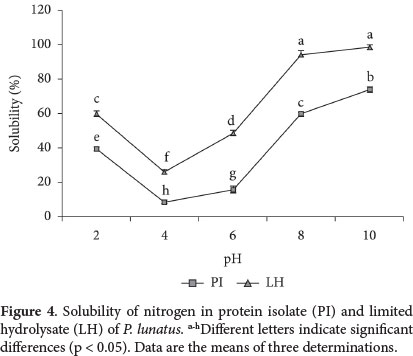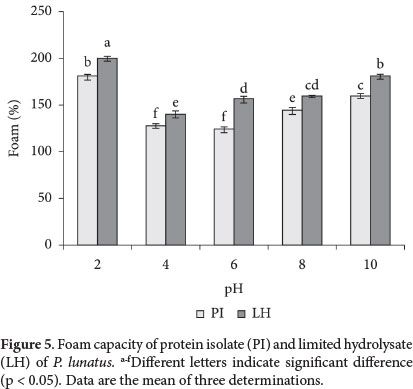Significant initiatives exist within the global food market to search for new, alternative protein sources with better technological, functional, and nutritional properties. Lima bean (Phaseolus lunatus L.) protein isolate was hydrolyzed using a sequential pepsin-pancreatin enzymatic system. Hydrolysis was performed to produce limited (LH) and extensive hydrolysate (EH), each with different degrees of hydrolysis (DH). The effects of hydrolysis were evaluated in vitro in both hydrolysates based on structural, functional and bioactive properties. Structural properties analyzed by electrophoretic profile indicated that LH showed residual structures very similar to protein isolate (PI), although composed of mixtures of polypeptides that increased hydrophobic surface and denaturation temperature. Functionality of LH was associated with amino acid composition and hydrophobic/hydrophilic balance, which increased solubility at values close to the isoelectric point. Foaming and emulsifying activity index values were also higher than those of PI. EH showed a structure composed of mixtures of polypeptides and peptides of low molecular weight, whose intrinsic hydrophobicity and amino acid profile values were associated with antioxidant capacity, as well as inhibiting angiotensin-converting enzyme. The results obtained indicated the potential of Phaseolus lunatus hydrolysates to be incorporated into foods to improve techno-functional properties and impart bioactive properties.
Phaseolus lunatus; protein hydrolysate; functional properties; bioactive properties; ECA; antioxidant activity







